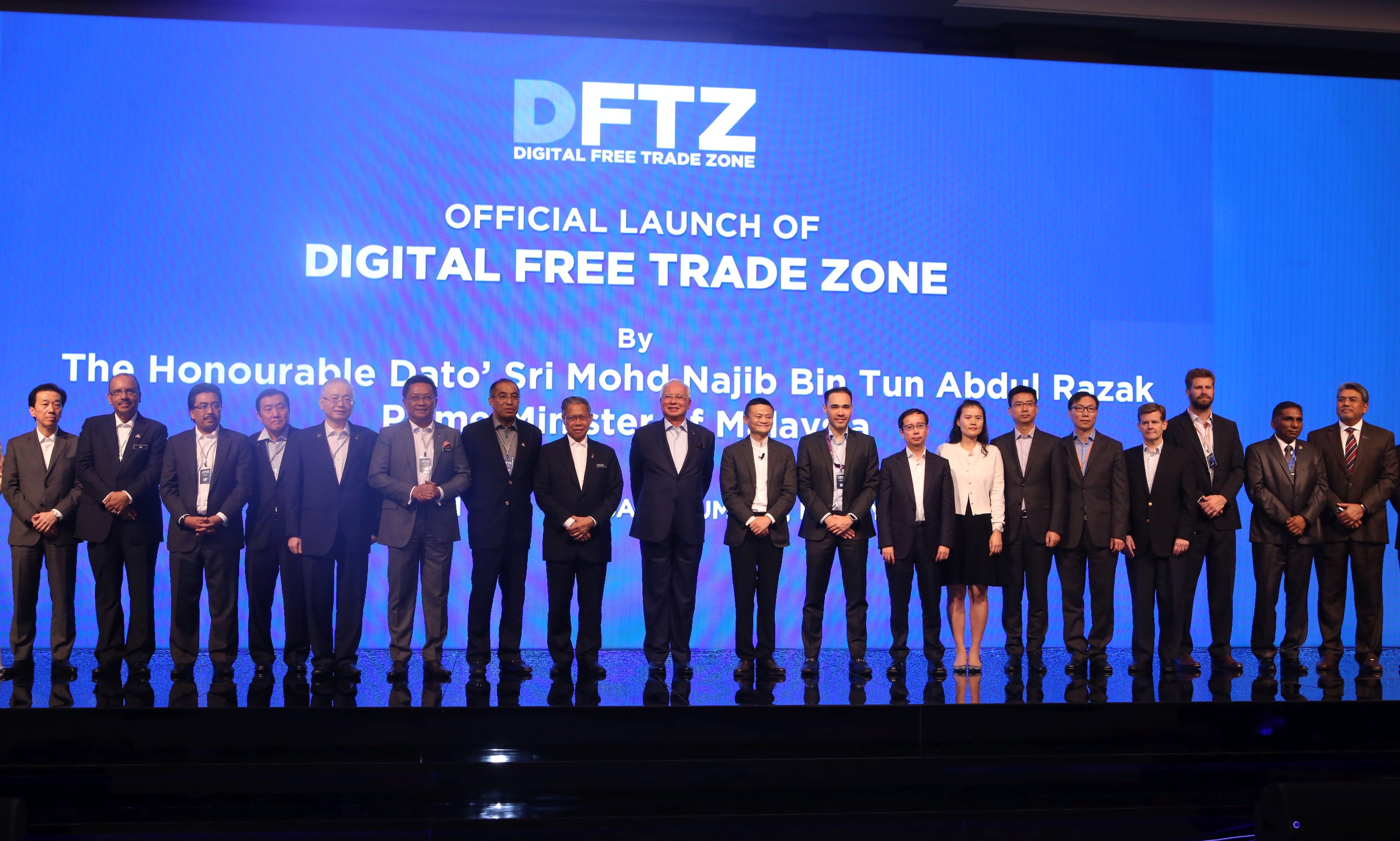Jack Ma and Alibaba Back World’s First Digital Free Trade Zone in Malaysia!
Jack Ma inaugurated the world’s first Digital Free Trade Zone in Malaysia to boost e-commerce and small to medium size enterprises (SMEs) in Southeast Asia. Considering Malaysia’s proclivity in the Asian region, This Digital Free Trade Zone (DFTZ) would act as a perfect platform for physical and virtual business set-ups to leverage the recent boom of online businesses. Malaysia’s DFTZ is set to handle more than $65 billion worth of goods at full functionality.

Jack Ma at the Digital Free Trade Zone Launch, Malaysia (Copyright @Alibaba)
“The Government will introduce the world’s first Digital Free Trade Zone outside of China. It will merge physical and virtual zones, with additional online and digital services to facilitate international e-commerce and invigorate internet-based innovation.”
Prime Minister Dato’ Sri Haji Mohammad Najib bin Tun Haji Abdul Razak
Alibaba has collaborated with the Malaysian government to channel Asian logistics movement through the latest DFTZ. This opens new avenues of trade and international merchandise movement for multiple countries in Asia and Southeast Asia.
Jack Ma made his intent and delight obvious at the launch, “Today we are witnessing a historic moment in Asia where one country has begun to use technology to enable its SMEs and young people to become more competitive on the world stage. This is an opportunity for not just the small businesses and young people in Malaysia but across Asia.”
Recommended Read: Why Is Jack Ma Investing In Indian Entrepreneurs?
What Does This Mean for Logistics Management in Asia?
The DFTZ is set to rewrite the precedents about government intervention and technology adaptability in logistics management in Asia. One of the features offered within the DFTZ is Modular Warehouses.
Modular Warehouses: Sort, shelf, package, and move merchandise using technology connectivity as the companies utilize data analytics to perfect tracking and optimizing of all their logistics movement. Such technology already exists with companies like LogiNext. With the application of such tech within the world’s first digital free trade zone, the future of e-commerce and logistics optimization seems to be written in the clouds, i.e. cloud-based logistics and field service optimization.
Jack Ma, who is also a digital economy advisor to the Indonesia Government, knows the importance of optimized logistics management for the sustained growth of online and stationary retail merchandise movement.
Alibaba released a statement about the same claiming, ““Mr. Ma said as Indonesians live across more than 17,000 islands, putting in place a comprehensive logistics network is a key challenge faced by the country’s e-commerce industry. To overcome this, two basic infrastructure issues need to be resolved with regards to the information network and logistics network.”
Opening in 2019: Regional Logistics Hub for E-Commerce Fulfillment
To get a sense of the direction that e-commerce and retail are moving in Asia, we can look at the steps countries are taking to align their logistics management with their growth strategies. As with companies, countries must focus and streamline their logistics to ensure productivity and cut down resource wastage.
Recommended Read: ASEAN Countries Rapidly Adopting SaaS Logistics Management Solution
The Malaysian government announced plans to launch the Regional Logistics Hub which would materialize by 2019 and is intended to be a sought-after regional hub for all ASEAN countries, as noted by Daniel Zhang, CEO, Alibaba.
References:
(1) TechinAsia: Jack Ma opens Malaysia’s ‘digital free trade zone’ with an eye to Southeast Asia’s e-commerce boom.
(2) Digital Free Trade Zone: Fact Sheet
174 1






Pingback: LogiNext-Blog | What do E-Commerce Customers Want? The Answer Lies in Last Mile Delivery Optimization!